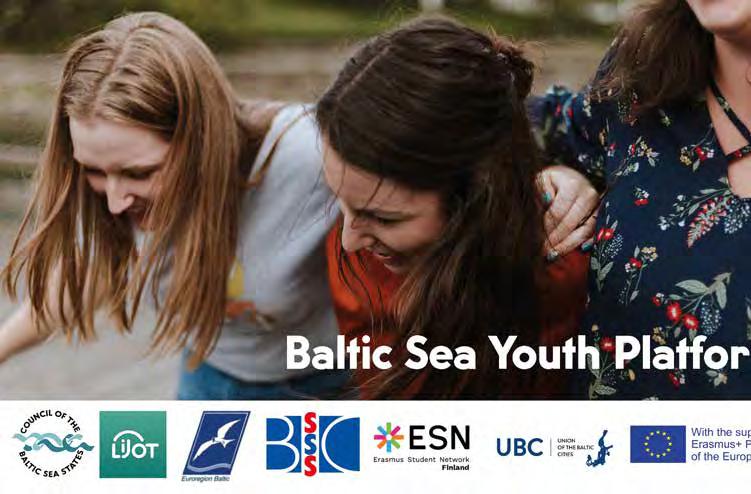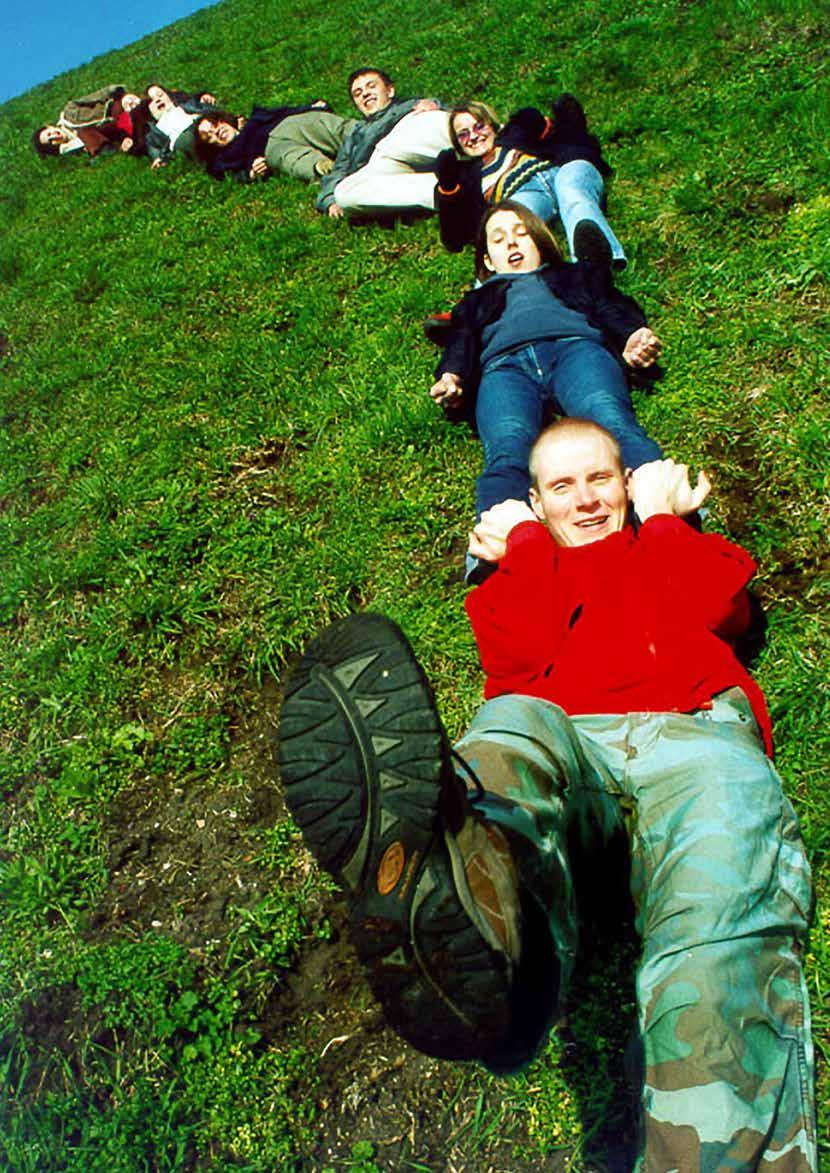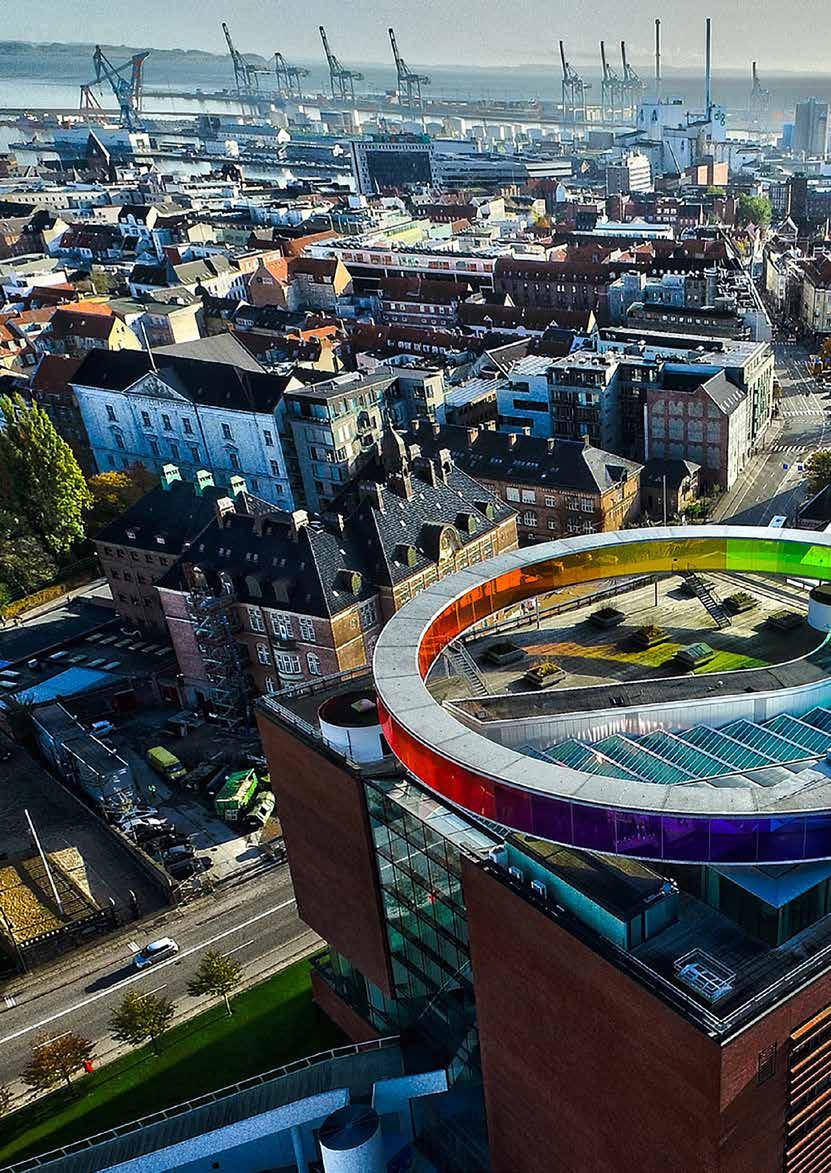
11 minute read
Youth in the spotlight
“Hey, we’ve got something to say!” later transformed into “Nothing about us, without us” has been a motto of the work on mainstreaming the youth issues in the cities and BSR development and also in the UBC agenda.
Youthful cities
Advertisement
In 1999 the first ideas to include views of young persons in the UBC work were fostered. In order to have a better platform for activities, the network was proposed to act as an informal structure. The UBC Network on Youth Issues was established in 2003, then in 2005 the network was transformed into a Commission on Youth Issues and in 2015 the Commission changed the name into Youthful Cities Commission.
The Commission consists of young people, as well as civil servants and politicians dealing with youth issues on the local level. It is a platform for young citizens to express their views and carry out initiatives and projects. It promotes youth engagement in city politics. The Commission also monitors the UBC agenda from a youth perspective.
Transforming the Network on Youth Issues into the Commission gave a new impetus for the young leaders who have been coming up with many ideas and projects, e.g. EU co-funded “Different History, Common Future”, “Life, Media and Participation – Youth in Baltic Sea Region” and ongoing “Baltic Sea Youth Platform”.
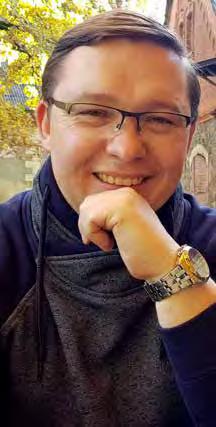
Dmitrijs Zverevs, Chair of the UBC Youthful Cities Commission, Riga Learning by living the UBC
My UBC story started in 2006 when the city of Riga joined the Commission on Youth Issues. Back then I had just started working for the municipality, so participation in the activities of the Commission provided a lot of opportunities to explore best practices in youth work and participation, as well as in international cooperation. The UBC appeared to be much broader than just the Commission’s meetings. I helped to organize several Youth Conferences took part in numerous projects, and joined the Task Force on Youth Employment and Well-being for some time. For me, the UBC has always been about people and the atmosphere, about the feeling of community and joint pursuit of the thriving Baltic Sea Region. It has been the source of knowledge to draw inspiration from and a safe hub to return to when looking for a reliable project partner. While looking forward to the next thirty years of the UBC, I am grateful to all those who once took the courage to expand the scope of the UBC into the youth dimension.
(“Book of Demands”)


Youth conferences
A dialogue between the youngsters and politicians have been enhanced through the idea of youth conferences that have been held every two years since 2003. The young participants representing youth city councils, schools, NGOs have been discussing together with the civil servants and city politicians such questions as youth influence and involvement, tolerance and intercultural dialogue, equality, unemployment, and many more. The UBC approach developed from “Talk about the youth” to “Talk with the youth” and the youth conferences have been evolving, getting more and more intertwined with the UBC General Conferences. At the General Conference in Växjö, Sweden, the young participants presented their solutions, ideas and comments at the plenary session called “Listening to the voices of tomorrow”, which can be watched on UBC YouTube.
z “Young voices of the Baltic Sea Region”, 2003, Kalmar, Sweden z “Young and active in the Baltic Sea Region”, 2005, Vilnius, Lithuania z “Under the surface”, 2007, Pärnu, Estonia z “Bridges over the Sea”, 2009, Kristiansand, Norway z Youth Seminar “Your Lifestyle. Your Choice for Happy Life in Our World”, 2011, Liepāja, Latvia. z “The Baltic Youth”, 2013, Mariehamn, Finland z “Youth for equality, equity and peace”, 2015, Gdynia, Poland z “Migration, participation and leadership”, 2017, Växjö, Sweden z 9th Youth Conference, 2019, Kaunas, Lithuania
Disussion with the youngsters at the session “Cities promoting and using smart solutions in practice”, XIII UBC General Conference, Gdynia, 27–30 October 2015 Photo: Piotr Manasterski
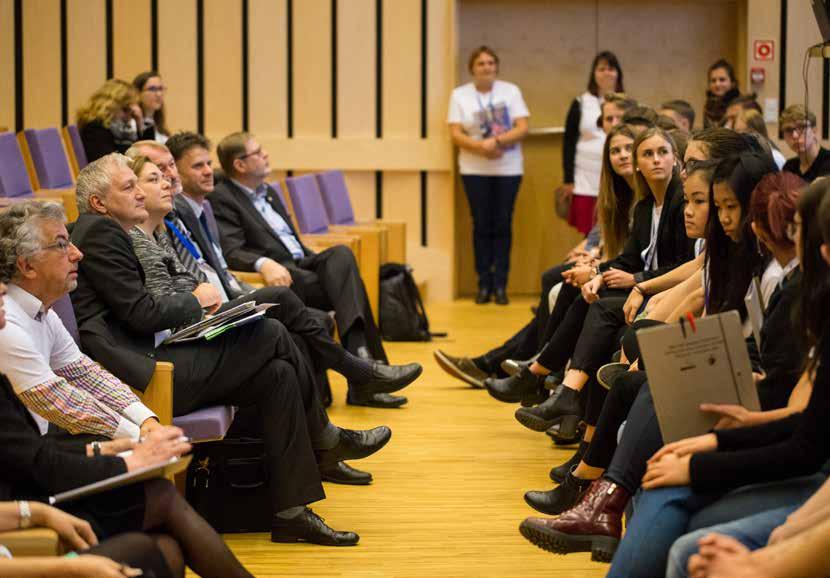
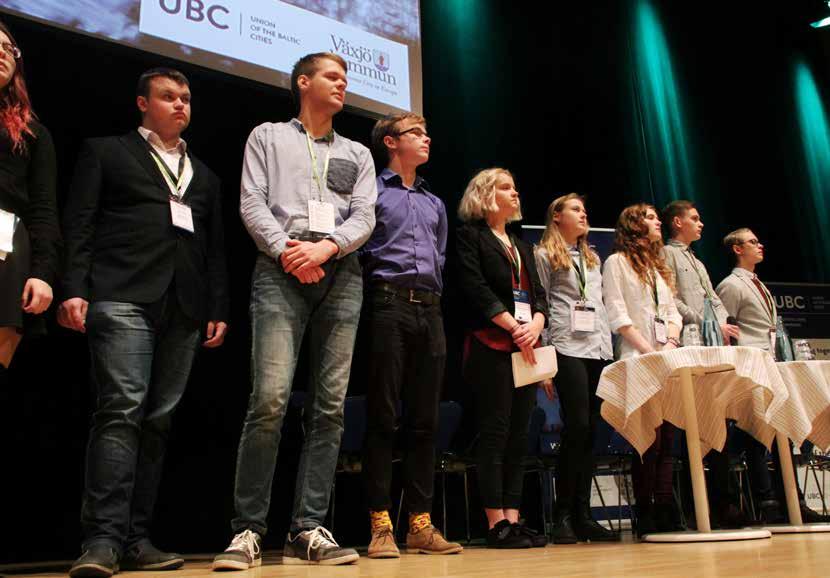
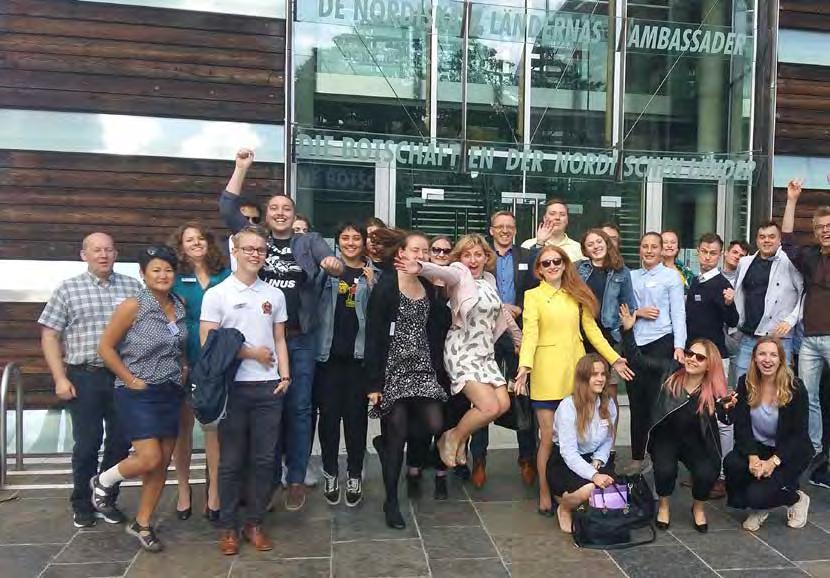

On 8–11 June 2019 over 100 young people aged 18–25 attended the Baltic Youth Camp in Gdańsk. The camp elaborated the Youth Declaration that was presented to important stakeholders and politicians at the EU Strategy for the Baltic Sea Region (EUSBSR) Annual Forum where this year’s topic was “Circular and sharing economy as an answer to demographic changes and environmental challenges in the Baltic Sea Region”.
During these four days the youth participated in seminars, workshops and presentations related to the Sustainable Development Goals (SDGs). Topics such as waste management, forestry, marine life and education were discussed.
The Youth Declaration contains 10 proposals that are both feasible and realistic in terms of implementation. The proposals include different projects that are generated and planned by the participants of the Youth Camp.
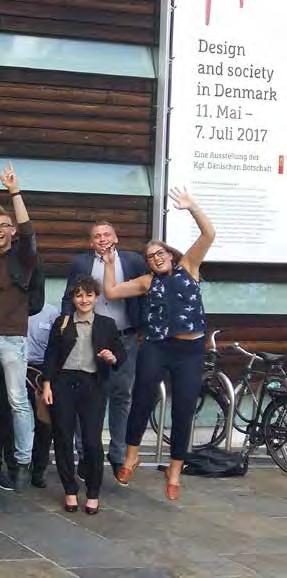
On the European arena
The voice of the Baltic Sea youth has been heard on the European arena. Youthful Cities Commission in cooperation with other BSR organisations: CBSS, BSSSC, Euroregion Baltic, organized several seminars and conferences within and in connection with the EUSBSR Annual Fora. They were aimed at including young people in the discussions about the future, sustainable development or climate change. Also, the questions of the youth empowerment and involvement, democracy challenges and digitalisation were raised at the events.
Youth seminar “Nothing about us without us – making it work!”, 8th EUSBSR Annual Forum Berlin on 13–14 June 2017. Photo: Irene Pendolin
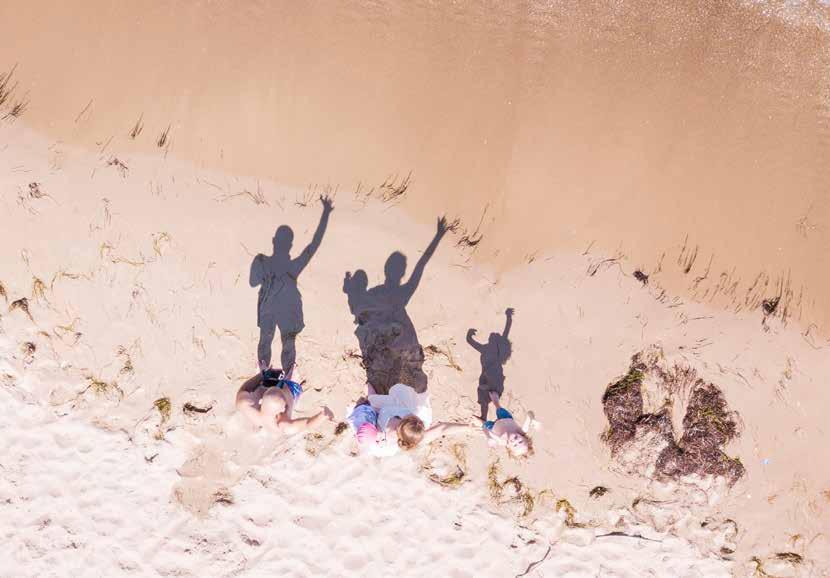
Youth Employment
UBC General Conference decided to establish a Task Force on Youth Employment and Well-Being in Mariehamn in October 2013. It offers the UBC members many services and networking opportunities, e.g. seminars, workshops, study visits. During the last years the Task Force has strengthened a cooperation with the EUSBSR Flagship School to Work (S2W). The Flagship aims to strengthen transnational cooperation between stakeholders in the Baltic Sea Region in the field of education and works in order to prevent early school leaving and develop new support methods for vulnerable groups of students/youth, which means that their goals are parallel to the ones of the Task Force.

Photo: stock.adobe.com
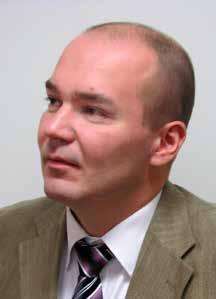
Matti Mäkelä, Chair of the UBC TF on Youth Employment and Well-Being, Turku My Journey with the UBC
The theme of the UBC General Conference in 2012 was combating youth unemployment and marginalisation. Because of this, Finnish member cities had appointed their own experts to the working group, which was tasked with preparing the programme to promote youth employment and well-being. The city of Turku took the leading role in this work and I was asked to lead the working group. At that time I was told that the work would take about half a year. Well, little did I know. The UBC Programme to Promote Youth Employment and Well-Being was introduced in Mariehamn at the General Conference. Discussions in
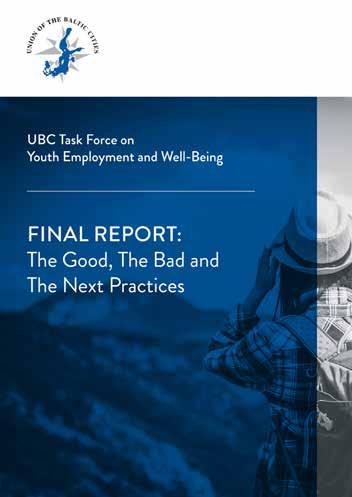
The report “The Good, The Bad and The Next Practices” was published. It serves as a handbook for professionals and others interested in the topic. It presents concrete measures and raises questions to be solved in the future and is a valuable tool to combat youth unemployment and marginalization.
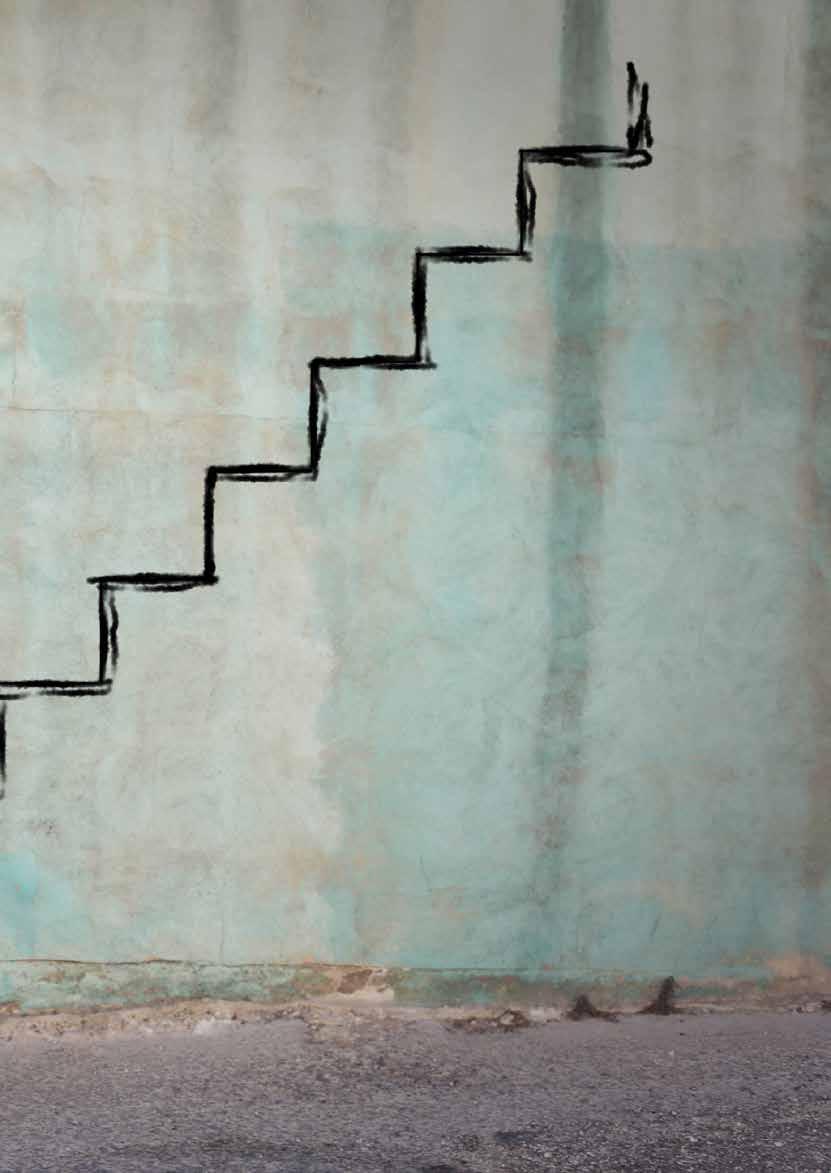
Mariehamn clearly indicated that UBC Member Cities were interested in working together to tackle youth unemployment and marginalization. That is why, the UBC GC decided to establish the Task Force on Youth Employment and Well-being. During the past seven years, the Task Force has been very active and successful. We have arranged over 20 study visits, seminars and workshops, collected best practices and implemented new projects. I want to highlight two specific outcomes. In 2015 the TF published The Good, the Bad and the Next Practices Report on implementing the Youth Guarantee in the BSR. Secondly, in May 2019 we held the Youth Guarantee Conference in Brussels, together with the European Committee of the Regions. In 2020–2021 the TF is and will be concentrating on three themes: STEAM, attractiveness of the VET and basic skills. My journey with the UBC family is packed with good memories. I have met many innovative, funny and inspiring people, found new friends, learnt a lot, and as I hope, I have been able to do my part in supporting youth employment and well-being.
Youth Education
In 1998–2015 youth education and exchange were also handled by the UBC Commission on Education. One of its flagship projects was Erken Laboratory Research School organized for the science students aged 15–20 from the UBC member cities. The main objective of the Research School was to let the students work with scientific research. The participants were responsible for asking and answering the scientific questions, planned and designed field– and laboratory work. They worked independently in the laboratories, and reported research results.
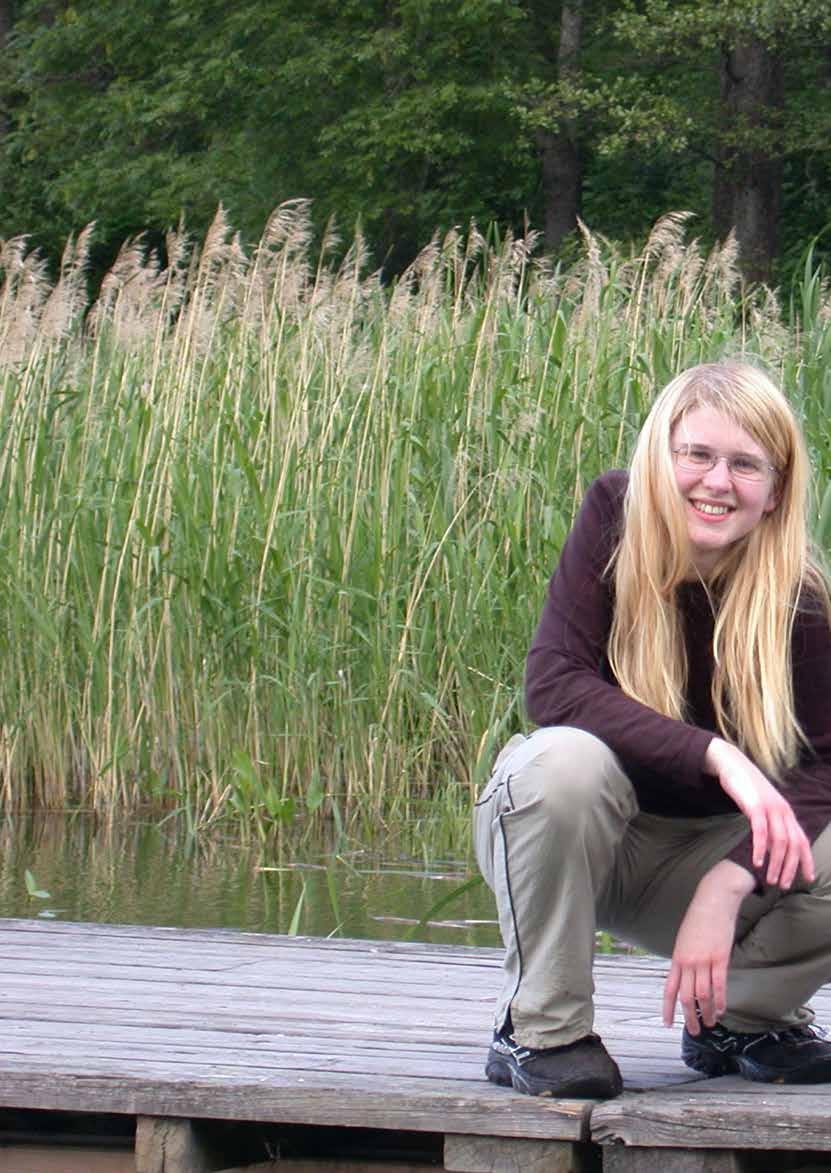
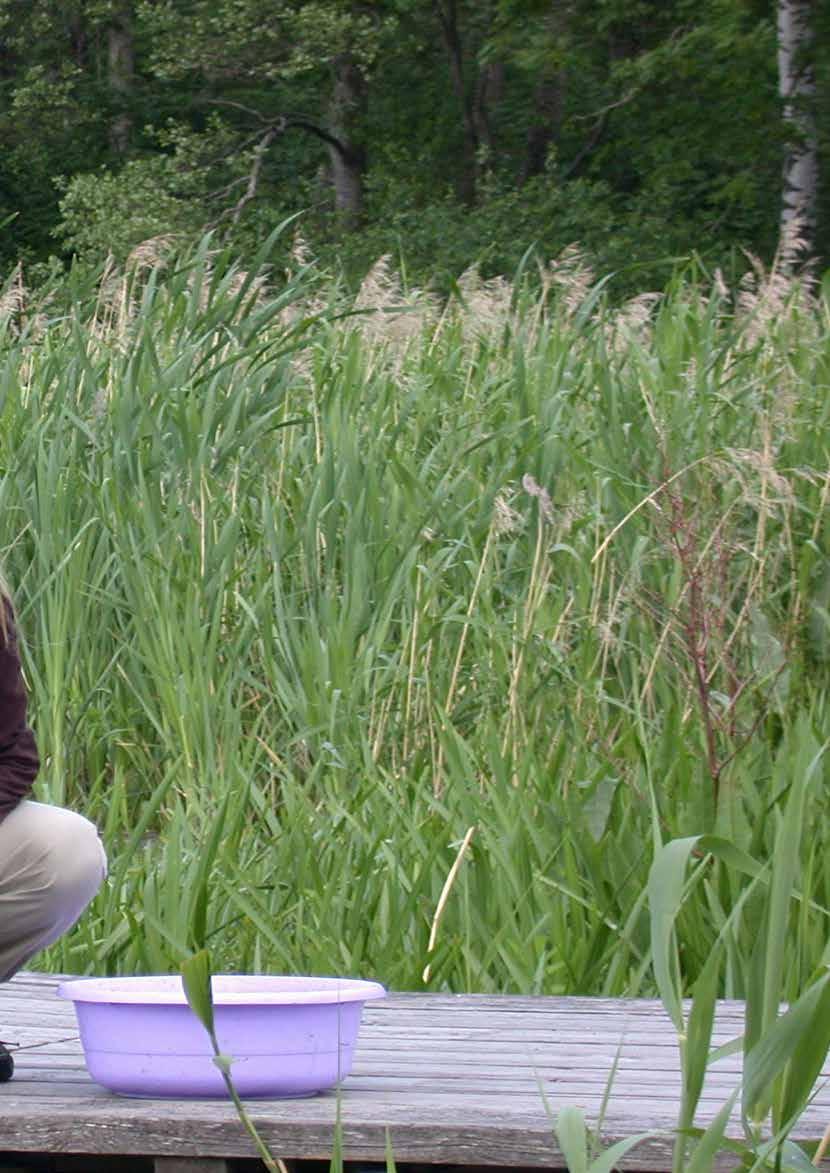
Projects
“Different History – Common Future!” Youth as a resource for a sustainable future in the Baltic Sea region 2007–2008 project included tolerance trips, NGO meetings, EVS (European Voluntary Service) seminars and a Youth Conference. One of its outcomes was the “Book of Possibilities”. Around 200 young people participated in this project.
Tolerance Trips with youth from Sweden, Estonia, Latvia, Denmark and Germany were made into the German-Danish border region. During those trips young participants gained intercultural, historical knowledge, experienced tolerance and cultural diversity during meetings with local minority groups.
“Life, Media and Participation – Youth in Baltic Sea Region”, 2012–2013.
The main theme of the project was how democratic life worked in different cities and countries and how young people can influence it.
The activities of the project consisted of:
z an intercultural seminar in Tallinn, during which youngsters from Sweden, Denmark, Latvia and
Estonia exchanged their experience on youth participation and Youth Council work z local round tables with politicians on young lifestyles, subcultures and youth democracy combined with workshops on creative techniques and making the campaigns z the exhibition of campaigns in the cities and virtual
Internet exhibition.
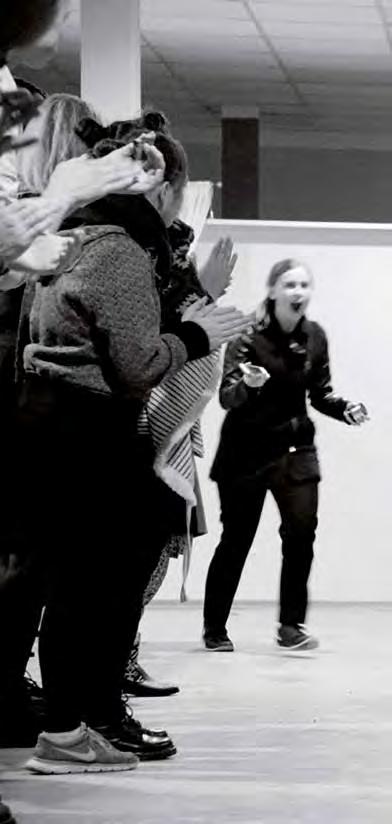

Natalia Vecvagare, Liepāja Windy greetings on the UBC family 30-year Anniversary from Liepāja
The most valuable touch in every cooperation process is always people, because only then the cooperation will “live”. I remember joining the UBC family in the early 2000s, feeling that amazingly positive charge finally swimming in
Photo: Lukas Kosowski
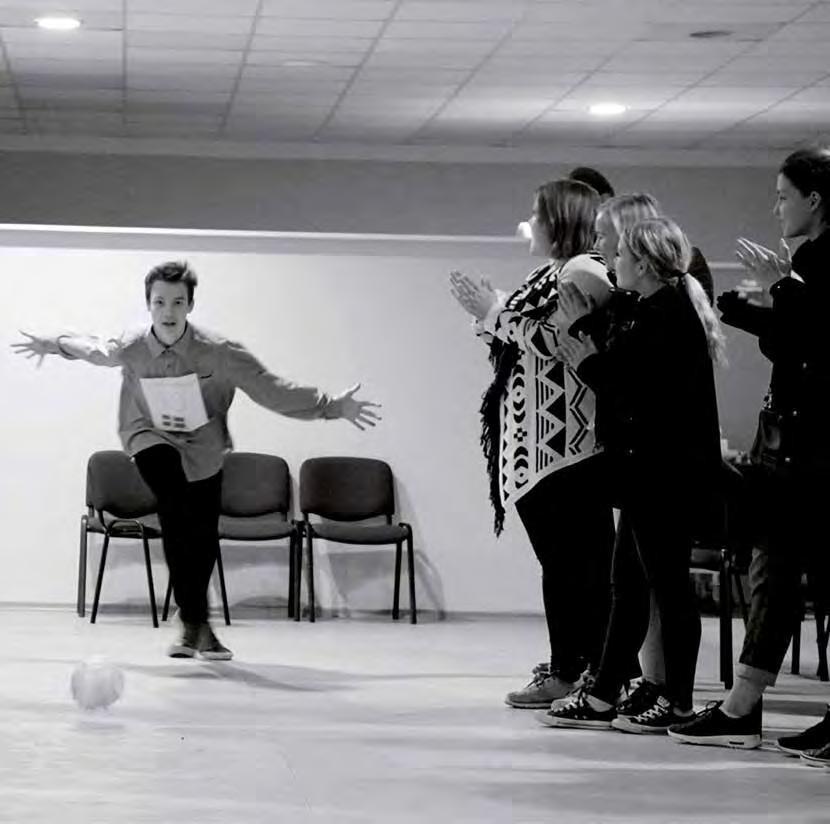
the international waters I studied and aspired to. The UBC was the missing puzzle piece – that grip of the world. That grip was our endeavour in 2011 and we embraced it in all the 270% (as the number of participants who came to Liepāja) when we accepted the baton to hold the XI General Conference. Many of the UBC colleagues still remember that time spent together, planning and implementing this mega-project (Well, at least for us it was), which we here in Liepāja later on nicknamed “The Grand Conference” (Because until then no such large international conference actually happened here). This kind of memories bring me back to the message roots – it is people who are UBC. The family. You may not remember me, but by the time of the conference I knew each of you by name and position, I knew your personal interests and preferences, I tried my best to get back to every one of you with your questions. Thank you for that grip of the world!
Baltic Sea Youth Platform
The Youthful Cities Commission has successfully applied for the EU funding to co-finance its events. Its project activities include also the cooperation within ERASMUS+ funded project Baltic Sea Youth Platform (BSYP), implemented together with CBSS (lead applicant), BSSSC, Euroregion Baltic. The platform is to empower the youth in the Baltic Sea Region. The project focuses on three areas:
z To improve the political impact of youth on decision-making in the Baltic Sea Region z To develop tools for better knowledge transfer, as youth involvement in policy making is subject to high fluctuation in human resources z To serve as a facilitator for various innovative projects relying on the interests and capacities of youth in a broad range of policy areas.
